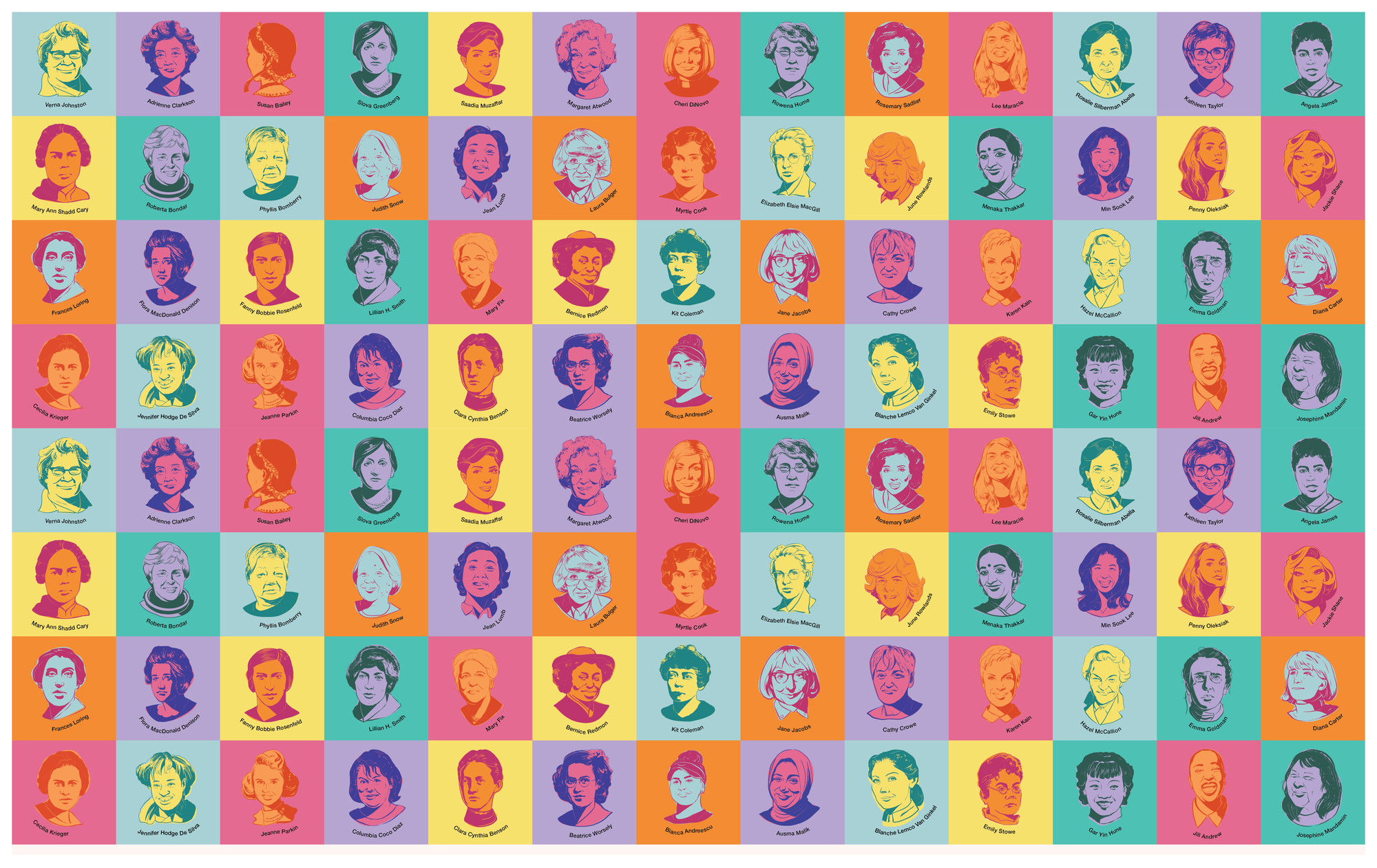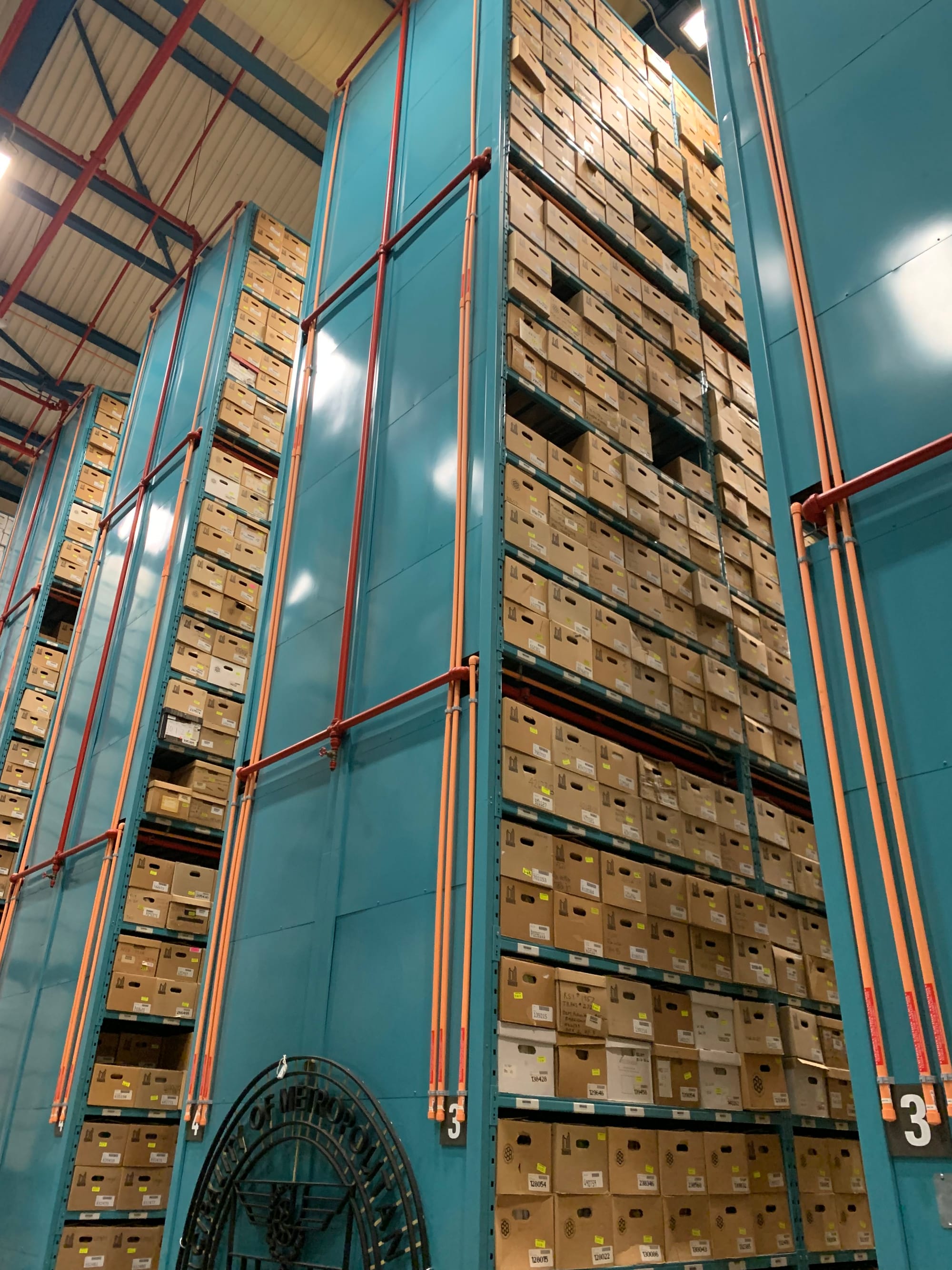Women talking: Review of The 52 Live at Luminato
Plus other stage highlights at the annual multidisciplinary arts and cultural festival, which kicks off this week

The City of Toronto Archives on Spadina Rd. is a wonderful research facility. Now it’s providing a unique backdrop for a special show.
In The 52: Stories of Women who Transformed Toronto, the unassuming (on the outside, anyway) building just south of Casa Loma makes an atmospheric and symbolically apt site-specific setting for a one-of-a-kind show celebrating some of the city’s most remarkable women.
Co-created by director Evalyn Parry and designer Shawn Kerwin, the show — presented by Museum of Toronto, in association with the Luminato Festival — brings to life all 52 stories of women who have significantly changed the city.
The 52 Project was conceived and developed by the Museum; it launched in 2023 as a participatory event at Nuit Blanche, and earlier this year premiered as an exhibit at its space at 401 Richmond, where it will be shown until the end of the year. (The online component gives you a good sense of its offerings.)
As part of that exhibit, 24 playwrights were asked to write monologues about their subjects. And for this live component, 16 performers take part. The stories have been divided up into eight performances, and run — two hour-long shows per evening — until Saturday the 7th. Each show is bookended by a lively choral performance that adds grandeur and ceremony to the proceedings.
I caught the second performance last night, and its honourees included such well-known figures as writer Margaret Atwood, broadcaster and former Governor General Adrienne Clarkson and writer and teacher Lee Maracle, as well as lesser-known (to me, anyway) figures like Olympians Penny Oleksiak and Myrtle Cook McGowan, pioneering architect Blanche Lemco Van Ginkel, anti-slavery activist and journalist Mary Ann Shadd Cary and obstetrician Rowena Hume, one of the founders of Women’s College Hospital.
The quality of the monologues is — how to put it? — uneven. One of the challenges of a project like this is imparting enough information that audiences get a sense of a subject’s accomplishments but also their personality — all in a handful of minutes, and without sounding like a Wikipedia entry.
Erin Shields solves this by having Clarkson (Diano Tso) deliver a letter to a sixth grade student, a new Canadian, talking about the importance of education and the significance of immigration — a subject that resonates powerfully at this time. Tso delivers the speech with clarity and dignity.
The luminous Barbara Gordon brings Hume’s inspiring biography — penned by Sarena Parmar — to life in a few quick strokes. Her story about how the hospital was formed because no one had up until then thought about women’s health is such a pressing subject today. The idea that doctors offered birth control for “therapeutic use” speaks volumes.

And while we’re on the subject of volumes, the way director Parry has placed Hume’s story in a narrow aisle, with stacks of boxes and records going up on either side to the ceiling (see my photo, above, to get a sense of the place) is incredibly intimate, as if the archives are coming alive and speaking to us. (Gordon will also be appearing at different performances as Hazel McCallion, Jane Jacobs and Clara Cynthia Benson, and I’m tempted to go see them all.)
Most powerful are a pair of monologues both written and performed by Diane Flacks. In the first, about record-setting sprinter McGowan, she details the woman’s illustrious career while addressing us as aspiring combatants in World War II. The structure and setting feel unusual but it works, and Flacks approaches the material with complete, rah-rah commitment.
And in the second, as Atwood (the monotone impression is uncanny), she delivers a speech that gets to the essence of the current moment — “the stars have not aligned like this since the French Revolution,” she says early on.
Without focusing too much on biographical details, Flacks gets to the heart of the writer’s aesthetic and humanitarian concerns, letting her sly, mordant wit come out several times — particularly in an anecdote about how then city councillor Doug Ford, in wanting to cut library services, once tried to throw shade at her reputation by confessing he didn’t know who she was and wouldn’t recognize her if she passed him on the street.
It’s a story, like all of these, worthy of being archived, amplified and discussed in this intriguing fashion.
The 52 Live Theatrical Experience continues at the City of Toronto Archives until June 7. See info here.
Other Luminato stage highlights
• An Oak Tree (June 14 to 22)
In honour of its 20th anniversary, the festival is offering up British theatre innovator Tim Crouch’s intimate show about the meeting between a man who’s lost his daughter in an accident and the man who was driving that car. That man also happens to be a stage hypnotist. Confirmed guests for the show include Amanda Cordner, Allegra Fulton, Qasim Khan, Daniel MacIvor, Karen Robinson, Jean Yoon, Luke Kirby and Mark McKinney. The twist? None of them have seen or read the script before they perform. And you won't know who’s appearing at your performance until the day of. See details here.
• Hamlet (June 13 to 15)
Shakespeare’s masterwork has been interpreted and reinterpreted in countless ways. But Peruvian director Chela De Ferrari is attempting something different in this internationally acclaimed production by Teatro La Plaza. He’s cast eight actors with Down syndrome to take part in the show, which is less a traditional telling of the story and more like a reimagining of certain key scenes. To be or not to be... in good taste? That’s the question that will be answered in this Canadian premiere. See details here.
Look for my reviews of both the week of June 16. And don’t forget to see Red Like Fruit.
